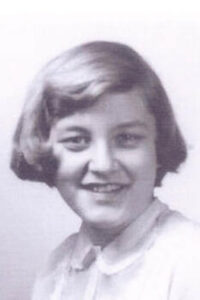
The Bars of Iron
It was certainly not Caesar’s fault. Caesar was as well-meaning a Dalmatian as ever scampered in the wake of a cantering horse. And if Mike in his headlong Irish fashion chose to regard the scamper as a gross personal insult, that was surely not a matter for which he could reasonably be held responsible. And yet it was upon the luckless Caesar that the wrath of the gods descended as a consequence of Mike’s wrong-headed deductions.
It began with a rush and a snarl from the Vicarage gate and it had developed into a set and deadly battle almost before either of the combatants had fully realized the other.
The rider drew rein, yelling furiously; but his yells were about as effectual as the wail of an infant. Neither animal was so much as aware of his existence in those moments of delirious warfare. They were locked already in that silent, swaying grip that every fighting dog with any knowledge of the great game seeks to establish, to break which mere humans may put forth their utmost strength in vain.
The struggle was a desperate and bloody one, and it speedily became apparent to the rider that he would have to dismount if he intended to put an end to it.
Fiercely he flung himself off his horse and threw the reins over the Vicarage gatepost. Then, riding crop in hand, he approached the swaying fighting animals. It was like a ghastly wrestling match. Both were on their feet, struggling to and fro, each with jaws hard gripped upon the other’s neck, each silent save for his spasmodic efforts to breathe.
“Stop it, damn you!” shouted the rider, slashing at them with the zeal of unrestrained fury. “Caesar, you infernal brute, stop it, will you? I’ll kill you if you don’t!”
But Caesar was deaf to all threats and quite unconscious of the fact that his master and not his enemy was responsible for the flail-like strokes of the whirling lash. They shifted from beneath it instinctively, but they fought deliriously on.
And at that, the man with the whip completely lost his self-control. He set to work to thrash and thrash the fighting animals till one or other of them—or himself—should become exhausted.
It developed into a horrible competition organized and conducted by the man’s blind fury, and in what fashion it would have ended it would be hard to say. But, luckily for all three, there came at length an interruption. Someone—a woman—came swiftly out of the Vicarage garden carrying a bedroom jug. She advanced without a pause upon the seething, infuriated group.
“It’s no good beating them,” she said, in a voice which, though somewhat hurried, was one of clear command. “Get out of the way, and be ready to catch your dog when they come apart!”
The man glanced round for an instant, his face white with passion. “I’ll kill the brutes!” he declared.
“Indeed you won’t,” she returned promptly. “Stand away now or you will be drenched!”
As she spoke she raised her jug above the struggling animals. Her face also shone white in the wintry dusk, but her actions denoted unwavering resolution.
Read or download Book
Ethel May Dell
Ethel May Dell Savage (2 August 1881 – 17 September 1939), known by her pen name, Ethel M. Dell, was a British writer of over 30 popular romance novels and several short stories from 1911 to 1939.
Biography
Dell was born on 2 August 1881 to a middle-class family in Streatham, a suburb of London, England. Her father was a clerk in the City of London and she had an older sister and brother. Dell began to write stories while very young and many of them were published in popular magazines. Her stories were mainly romantic, set in the British Raj and other old British colonial possessions. Her stories were considered by some to be overly sexual. Her cousins were known to tally the number of times she used the words passion, tremble, pant, and thrill.
Dell worked on The Way of an Eagle, her first novel, for several years, finally publishing it under T. Fisher Unwin after being rejected eight times by other publishers. The book was included in Unwin’s First Novel Library, a series that highlighted a writer’s first book. The Way of an Eagle was published in 1911 and had gone through thirty printings by 1915.
In 1922, Ethel married a soldier, Lieutenant-Colonel Gerald Tahourdin Savage, who resigned his commission at his marriage, making Dell the sole support of the family. Despite unfavorable reviews from critics, she developed a strong fan base, earning from £20,000 to £30,000 a year. Her husband devoted himself to her and fiercely guarded her privacy. Dell continued writing, eventually producing about thirty novels and several volumes of short stories throughout her life.
Dell died of cancer on 17 September 1939 at age 58.
Pictures of her are very rare and she was never interviewed by the press.
References in literature
The protagonist of George Orwell’s novel Keep the Aspidistra Flying, makes several negative comments about Dell and other authors (notably Warwick Deeping), specifically mentioning The Way of an Eagle. He also refers to her in answers to The Cost of Letters (1946), a questionnaire on the subject of earning a living by writing.
Noel Coward in the introduction to Three Plays writes, “There will always be a public for the Cinderella story, the same as there will always be a public for Miss Ethel M. Dell and the Girls Companion. In the world of amusement, someone needs to cater to the illiterate …”
The titular character of Winifred Watson’s novel Miss Pettigrew Lives for a Day refers to Dell as the source of her inspiration to encourage a young gentleman to punch a rival by hissing, “Sock him one” at the key moment.
In Richard Hughes’s In Hazard, the engineer Souter aboard the steamer Archimedes has a nightmare about the late chief engineer who was lost at sea. Rather than try to sleep, he begins to read a book by Ethel M. Dell.
P. G. Wodehouse refers to Dell in several of his stories. Some have opined that Wodehouse’s character Rosie M. Banks is based on Dell; however, Wodehouse himself told his biographer Richard Usborne that Rosie is based on Ruby M. Ayres. Wodehouse also mentions Dell by name in his novel Uncle Dynamite (1948), whose hero, Bill Oakshott, is several times encouraged to model himself on the masterful man in The Way of an Eagle. He also wrote the short story “Honeysuckle Cottage”, which uses themes and characters very like those of Ethel M. Dell. In it, a writer of Raymond Chandler-like hard-boiled detective stories finds to his horror that his work (and later his whole life) is being possessed by characters who seem to come out of a syrupy romance novel by “Leila M. Pinkney”.






